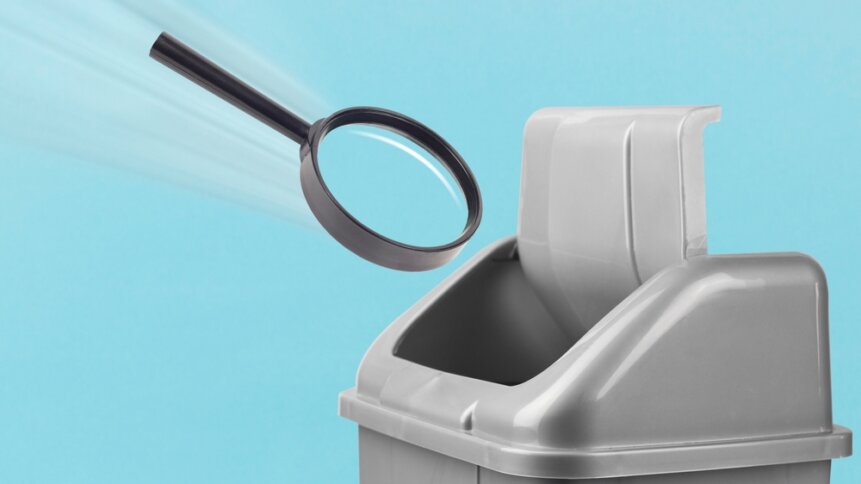What is a disposable browser? Do you need one?

• If you need to go bias-free, you might need a disposable browser.
• A disposable browser also stops tracking cookies and caches attaching to your search.
• What happens in a disposable browser stays (and dies) in a disposable browser.
We all know what disposable vapes are by now, but you may not have much clue about disposable browsers. Designed so users can undertake secure, one-time tasks, a disposable browser is an isolated, temporary web browser.
By using this type of browser, cybersecurity risks are lowered, due to the fact that it operates in a sandboxed environment (a Docker container or a virtual machine). That means you don’t need to worry about tracking and malware.
These isolated browsers are typically employed to execute small pieces of JavaScript code on different web browsers. For instance, developers may use one to test or validate processes, ensuring their JavaScript code works consistently and correctly across multiple web browsers.
As the name suggests, the browsers dispose of data from each logged session, ensuring a fresh start with the next session. That improves overall security and privacy, which can be particularly beneficial when entering sensitive data online.
Developers and testers benefit significantly from using disposable browsers, as they create a controlled, stable environment when testing and debugging various web applications. This is ideal as the browser does not allow pre-existing extensions, cached data, or cookies to interfere, providing a safer, more accurate online experience when testing, and/or debugging.
Disposable browser uses
Disposable browsers are ideal for anyone concerned with privacy when using social media. By using this isolated browser, you can prevent tracking and separate your online activities from any personal information. With data collection becoming more extensive on social media platforms, a disposable browser acts as a shield, stopping social media companies collecting your data.
Accessing untrusted or unknown links and sources can put your system and personal information at risk from malware infections and leaks. But a disposable browser creates a safe environment, preventing risks to the main operating system.
Trainees often use disposable browsers to learn cybersecurity skills. These browsers allow users to work with potentially malicious software or websites in complete safety. They prevent any risks to the network and host system, letting learners tackle dangerous threats within a controlled setting.
The internet is jam-packed with scammers, preying on online shoppers anonymously. A disposable browser, however, acts as a crime-fighting tool, enhancing privacy as you shop online. Users can buy goods and services online without leaving any sign of personal information, including their payment details. By using an isolated browser, shoppers can also avoid their shopping habits being shared, with no residual data, like a browsing history or cookies remaining once the session is finished. This results in a dreamy browsing experience with no data profiling or targeted advertisements.
As mentioned earlier, developers utilize disposable browsers to test various web applications on a range of browser engines. The clean environment offered by these browsers helps ensure a consistent user experience – which is crucial for users who engage with content across various browsers and operating system versions.
How do disposable browsers work?
Disposable browsers operate on remote servers in Docker containers or virtual machines. When the next session begins, the browser is initiated with a clean slate and predefined image. This ensures a consistent and controlled environment for users as they browse.
When a user finishes a browsing session, the pre-configured image is discarded, isolating the previous browsing session, and enhancing security. No data, including cookies, cached files, and a user’s browsing history is saved, guaranteeing an uncontaminated, fresh start the next time they browse. A disposable browser is essentially a virtual fort or suit of armor, safeguarding a browser’s security and privacy, and deflecting potential threats, so online activities remain confidential and well-guarded.

Defeat data-harvesters in one almost-easy step.
Users receive the disposable browser’s interface in the form of a video feed, guaranteeing all online actions take place solely within the remote environment. Browsing patterns, history, and sensitive data are kept safe by the browser, protecting users from any potential threats, such as phishing scams or malware attacks.
When using a disposable browser, you are inside an isolated, remote environment. When using a standard browser, your data is stored locally, exposing you to targeted ads based on your browsing history, cookies and cache. Regular browsers leave users open to security and privacy risks, whereas disposable browsers protect you from such harm. Whatever happens in a disposable browser stays in a disposable browser, giving users peace of mind and security. Think of a disposable browser as like Vegas – but without the two-drink minimum.










